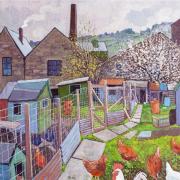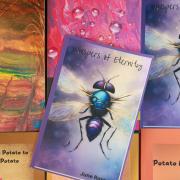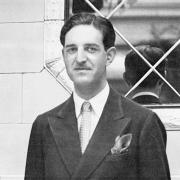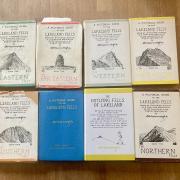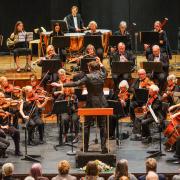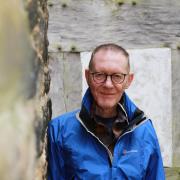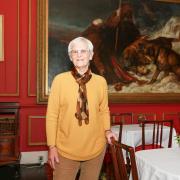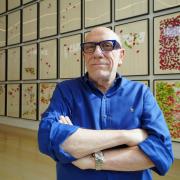Peter Salmon, the man in charge of bringing the BBC to Salford, feels there's still something missing from his cv, as Paul Mackenzie reports
Photography by Kirsty Thompson
Peter Salmon has had, by any measure, a successful career. He has held senior posts at the BBC, Granada and Channel 4, he has won just about every award in TV. He is now a member of the BBC executive board and as director of BBC North he is leading the corporation’s move to Salford.
But he admits there is one lifelong ambition he will probably never achieve. ‘I always wanted to be editor of the Burnley Express. I expect I’ve missed my chance now.’
He’s certainly going to be too busy in the next few months, overseeing the biggest move in the BBC’s history.
Sport, children’s TV and Radio 5 Live are among key BBC departments - involving around 2,500 staff in all - which will transfer from London to the Media City site at Salford Quays.
‘This is a huge re-thinking of who we are and what we do,’ the 54-year-old said. ‘It is a complete re-imagining of the BBC. The departments we are moving are really substantial and the breakfast show will be broadcast live from Salford every day.
‘I think over a period of time viewers will feel the BBC looks and sounds a bit different and they will see the places they live and are proud of.
‘It is not just a job for me to bring a big troupe of people north, I am using all my contacts and networking skills to move the BBC centre of gravity north by a few degrees. We will make a lot more content from this part of the world, working with people from a whole range of different backgrounds.’
Peter, who is now married to actress Sarah Lancashire, was born in a small house in Trafalgar Street, Burnley, the third child of four for an Irish immigrant window cleaner and a Lancashire mill worker.
The house was busy with friends and family, music and stories, noise and laughter and beyond the hectic home life, Burnley felt to the young Peter like a bright, bustling place.
‘I was a story teller and entertainer even quite early in life and I remember the impact early television programmes had on me. I was very magnetised by Coronation Street.
‘I was aware, though, that I had been born in Granada-land. The BBC seemed very distant and very stuffy. I thought it was all too posh and that everyone there spoke Latin. I thought the BBC was beyond people like me and never considered that would be my career ladder. But now we have dragged it all closer to where I came from and that is a source of pride.’
Peter spent his first 21 years in Burnley, then became the first member of his family to go to university - he chose Warwick because their prospectus featured a photograph of footballer Steve Heighway
The former St Mary Magdalen Primary School and St Theodore’s High School pupil was told by a careers advisor to seek work in a bank. He ignored them and did a stint as a � VSO teacher in Malaysia and a government press officer before training as a newspaper reporter in Kent.
‘I remember Burnley as a place where things were made and stuff was built,’ he said. ‘There is a strong sense of pride about what people have created, this is a wonderfully creative part of the world. It is a region full of story tellers. I got into the business because I wanted to be a story teller.’
He joined the BBC as a trainee in 1981, working on programmes as diverse as Blue Peter and Newsnight. Over the following decade he produced Crimewatch UK, was responsible for more than 40 environmental programmes for Bristol’s Natural History Unit; was co-creator of Sport Relief, and was executive producer of Nick Park’s Oscar-winning animation The Wrong Trousers.
He has left the BBC twice - for award-laden spells with Channel 4 and Granada, and then to launch his own production company - but has returned each time to work as Controller of BBC One, Chief Creative Officer of BBC Vision Productions, and, since 2008, as Director, BBC North.
‘I have always had a bit of a wanderlust,’ he said. ‘I have made programmes all around the world and I have worked all over the UK, in Oxford, Bristol, London - I don’t worry about my address. I have loved exploring and living in different places.
‘And now I am exploring the new north. It is a wonderful place to make connections and I have been impressed by how energised the new north is.’
The 200 acre Media City site beside the Manchester Ship Canal, is now being kitted out with the latest technology in readiness for opening next spring. Shiny new studios, hotels and apartments have transformed old industrial land and the tramway system will start to run onto the new site this month.
But in these post-recessionary times - and with Media City expected to carry a total cost of nearly �1billion - the BBC is not exempt from the government’s austerity measures.
Culture secretary Jeremy Hunt has announced he is considering cutting the licence fee but Peter said: ‘The coalition government is new and they are still learning about us. I understand why they have to say these things but I hope they appreciate what the BBC does. The licence fee underpins everything we do and we can only be as ambitious as we can afford to be.
‘I am on a mission. Not a mission from God, a mission from Lancashire. A mission to make the BBC more accessible. I know I’ll never edit the Burnley Express but I don’t want anyone else to grow up thinking the BBC is beyond them.’



